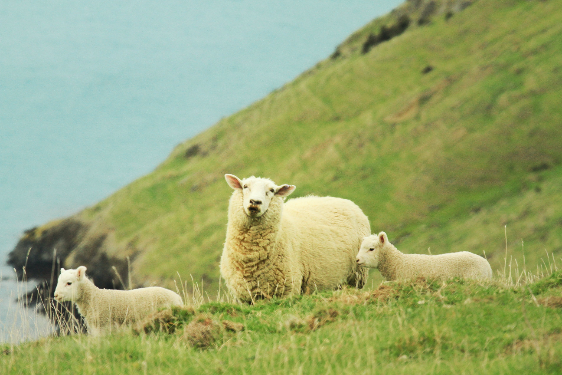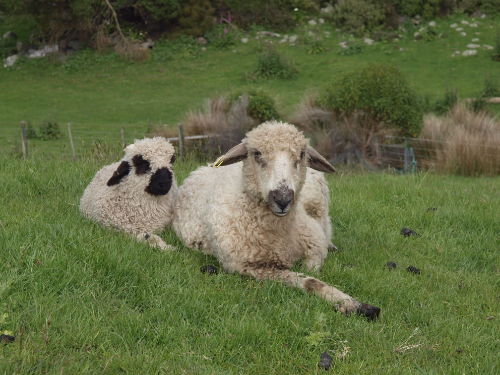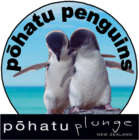What we do
Farming
Farming in a way that allows biodiversity to thrive
Grass on farms is non-native and would turn into long rank grass without sheep or cattle grazing it down. Rotational grazing is done in the penguin breeding areas, keeping grass shorter non intensively with sheep. Little Penguins can find their path home easily when the grass is shorter instead of trying to climb through a jungle of long rank grass.
Past experience has shown that leaving sheep out of the penguin areas was a big mistake as the grass becomes long rank and penguins left trails using the same path every night. It became obvious to Shireen and Francis that stoats, predators to penguins, were also using these penguin highways to pick birds off as they come up. With shorter grass penguins can see predators coming and have more access to move around the colony.
Pōhatu/Flea bay farm is 1000 acres, with 40% dedicated by the Helps family to native forest regeneration and 60% used as productive grassland for sheep. There are 7 covenants (legally protected zones) on the farm, which hold legal protection in perpetuity.
 |
 |
|
An introductory video about the importance that marine birds play in our marine environment, and the importance of research allowing us to understand their behaviours and marine habitat use to better protect them.
|
To celebrate the 10th anniversary of the Akaroa Marine Reserve and the 25th anniversary of the Pōhatu Marine Reserve, key stakeholders gathered on the 10th of March during Sea-week 2024 to commemorate these achievements for New Zealand marine wildlife. |
Hear from Dr Rachel Hickcox about the importance of monitoring a penguin colony. |
|
Discover the ins and outs of our Adopt a penguin program
|

